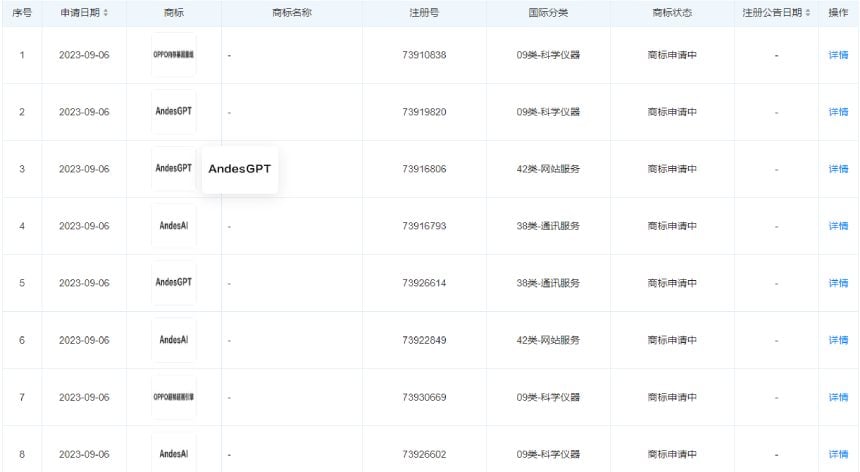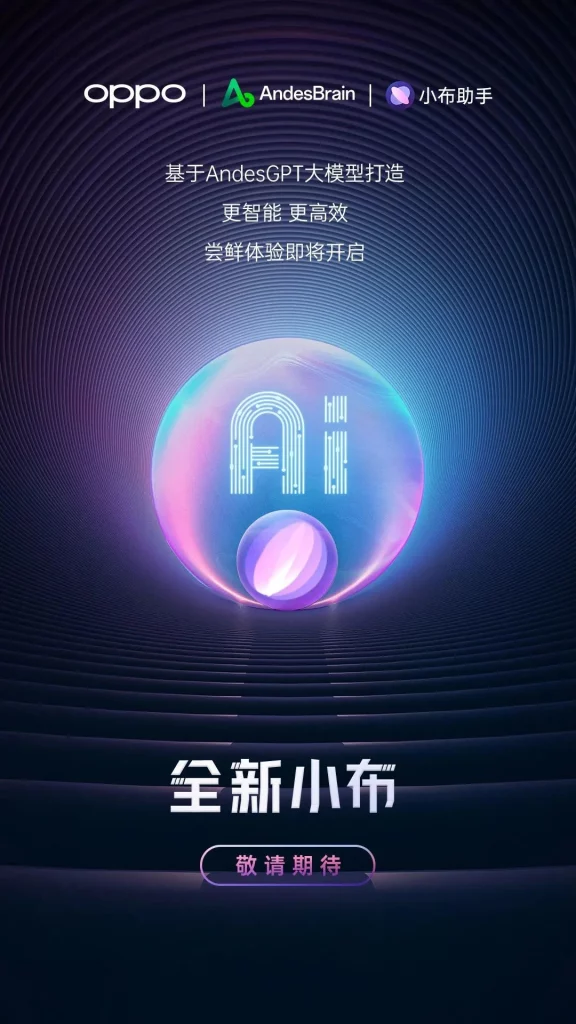Oppo announced in August that it would launch an expansive experiential activity featuring its new version of Xiaobu Assistant, which is built on the company’s large language model, AndesGPT. The company has now applied to register multiple “AndesGPT” and “AndesAI” trademarks, with an international classification of scientific instruments, communication services, and website services. The current trademark status is under application.

AndesGPT is a generative large language model (LLM) developed by the OPPO Andes Intelligent Cloud team. The team began exploring and implementing pre-trained language models two years ago and self-developed large models OBERT with 100 million, 300 million, and 1 billion parameters. OBERT once ranked fifth in the overall list of the Chinese language understanding evaluation benchmark CLUE1.1 and first in the large-scale knowledge graph question-answering ranking KgCLUE1.0.
OPPO revealed that AndesGPT is based on the OBERT model training experience and integrates key technologies such as continuous learning of Chinese dialogue data, fine-tuning of instructions, human feedback reinforcement learning, and knowledge enhancement. In June this year, it ranked first on the C-Eval evaluation list.

The application of the AndesGPT and AndesAI trademarks suggests that OPPO is planning to make a big push into the AI assistant market. It will be interesting to see how OPPO’s new Xiaobu Assistant performs in the market. If it can offer a compelling user experience, it could be a major player in the AI assistant space.
In addition to the trademark applications, OPPO has also been making other moves to strengthen its AI capabilities. In April, the company announced a partnership with Alibaba Cloud to jointly develop AI technologies. This will allow OPPO to develop more sophisticated AI-powered features for its smartphones, as they had just recently shut down their chip business.
Related:
- Oppo Find N3 Flip Tops Sales Charts in 6K+ Price Range
- Oppo A38 with Helio G85 SoC, 50MP primary camera & 33W fast charging launched in India
- Oppo Pad gets cellular connectivity with this new feature
- Oppo Find N3 Flip Tops Sales Charts in 6K+ Price Range
- OPPO A2 Pro Appears On China Telecom Listing Ahead Of Official Launch







